
Young Man Just Woken Up in Bedroom Stock Photo Image of woken
I just woke up and you're blaring music like it's a Saturday night! Yesterday, the construction crew started early so she woke up anyway. You woke up in the hospital after the car accident. We woke up when we realized we weren't in Chicago. Past Participles: "Woken Up"; Waken Up

just woke up To go to the English class Make a Meme
The past-tense and past-participial forms of wake and its various siblings are perhaps the most vexing in the language. Following are the preferred declensions: wake > woke > waked (or woken) awake > awoke > awaked (or awoken) awaken > awakened > awakened. wake up > woke up > waked up. For the past participle, AmE prefers waked; BrE prefers woken .

Young Woman Who Had Just Woken Up in the Morning Stretched Her Arms on
This is one area where American and British English differ. If you have studied British English, you probably learnt that 'just','yet' and 'already' take a present perfect tense. However, American English tends to use the past simple with these words. So, the answer is : either one can be correct, depending on the variety of English you are using.

Girl has just woken up stock photo. Image of colorful 12679824
I Just Woke Up or Woken Up or Wake Up | Meaning, Difference, and Examples in a Sentence "I just woke up" and "I just woke up" are both correct grammatically; however, "I just woke up" is used more often in everyday conversations. "Woke up" is the past tense of "wake up" and is used to describe a specific event during the previous time.
I Just Woke Up Atau I've Just Woken Up?
2. Prep a little treat for yourself the night before. There's something about the smell of coffee that gives lots of people a boost, so if the sound of your alarm doesn't quite do it for you.
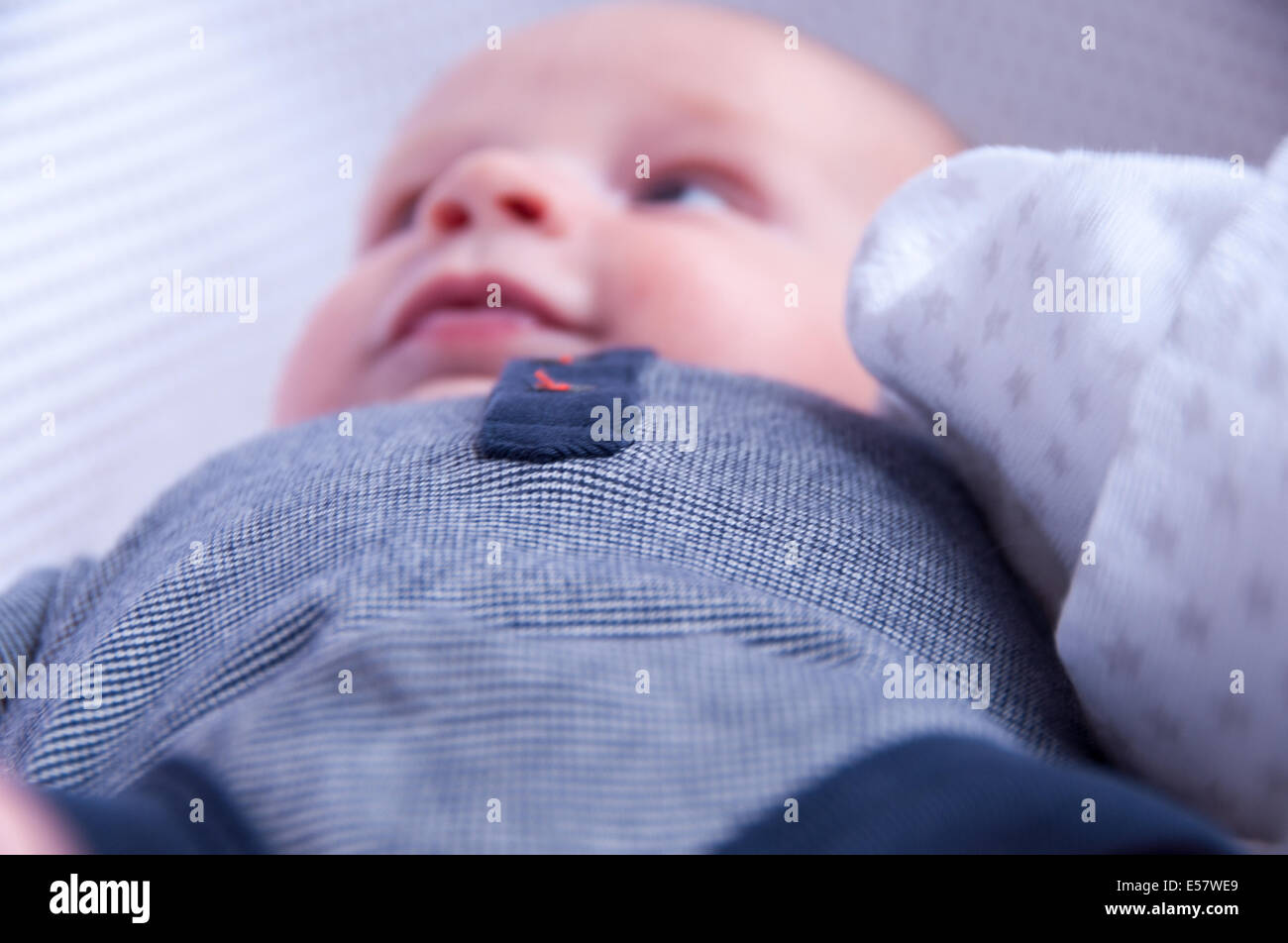
Baby just woken up in his nursery Stock Photo Alamy
The first sentence, "I've just woken up," implies that you have recently just woke up and you are still in the process of waking up. The Zeeshan (CelebFanClub.SBS) Author has 549 answers and 407.4K answer views Oct 30 The English language, with its abundance of subtleties, can pose dilemmas even for native speakers.
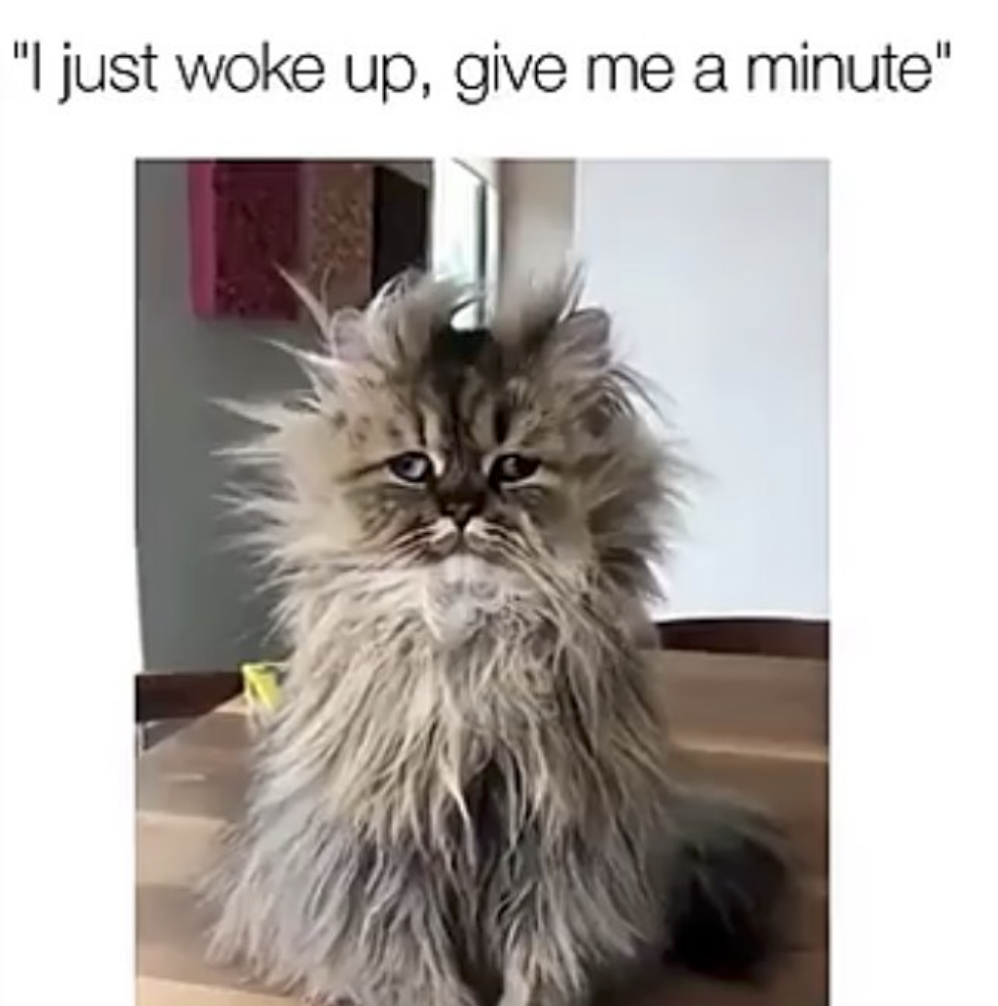
31 Fresh Pics And Memes For The Exquisite Minds Gallery eBaum's World
1 "Awake" simply means the state of not being asleep. "I am awake" makes no implications about how long you have been awake. You may have woken up, or been woken up, just a moment ago or hours ago. As usual, context will do more than the actual words to make the meaning clear. Share Improve this answer Follow answered Apr 18, 2022 at 4:50
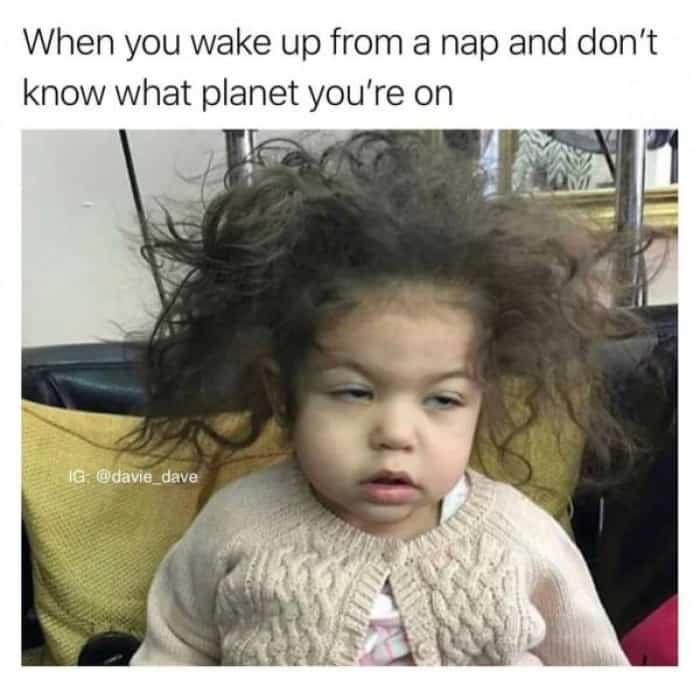
20 Wake Up Memes That'll Turn Your Day Around
What It Means When You Can't Wake Up Are you wondering why you can't get up in the morning or what the underlying cause of your drowsiness could be? There can be a variety of reasons why can't wake up in the morning and some may require more immediate medical attention than others. Possible Medical Conditions

Just woken up! Animals, Cats, Wake up
#1 hello, i am just wondering if i talk about very very recent event, so should i use simple past tense or present tense E.G, I just woke up. or i just wake up. or i can use both of them to express my condition? R Rover_KE Moderator Staff member Joined Jun 20, 2010 Member Type Retired English Teacher Native Language British English

Just woken up by TheCal on Newgrounds
9 We can say either sentence, but waked is used far less often than woke. He just woke up. wake (base/infinitive) woke (simple past) woken (past participle) The two sentences have almost the same meaning, and we often use them interchangeably. There is a slight distinction: "He just woke up" tells us that the person is now awake.

Just Woken Up 7Dec2013 YouTube
The words "wake up" can be used in a sentence instead, when describing a present or future happening. This rule can be confusing. To help you remember it, note the following example: Correct: I woke up too late for breakfast. Incorrect: I waked up too late for breakfast.
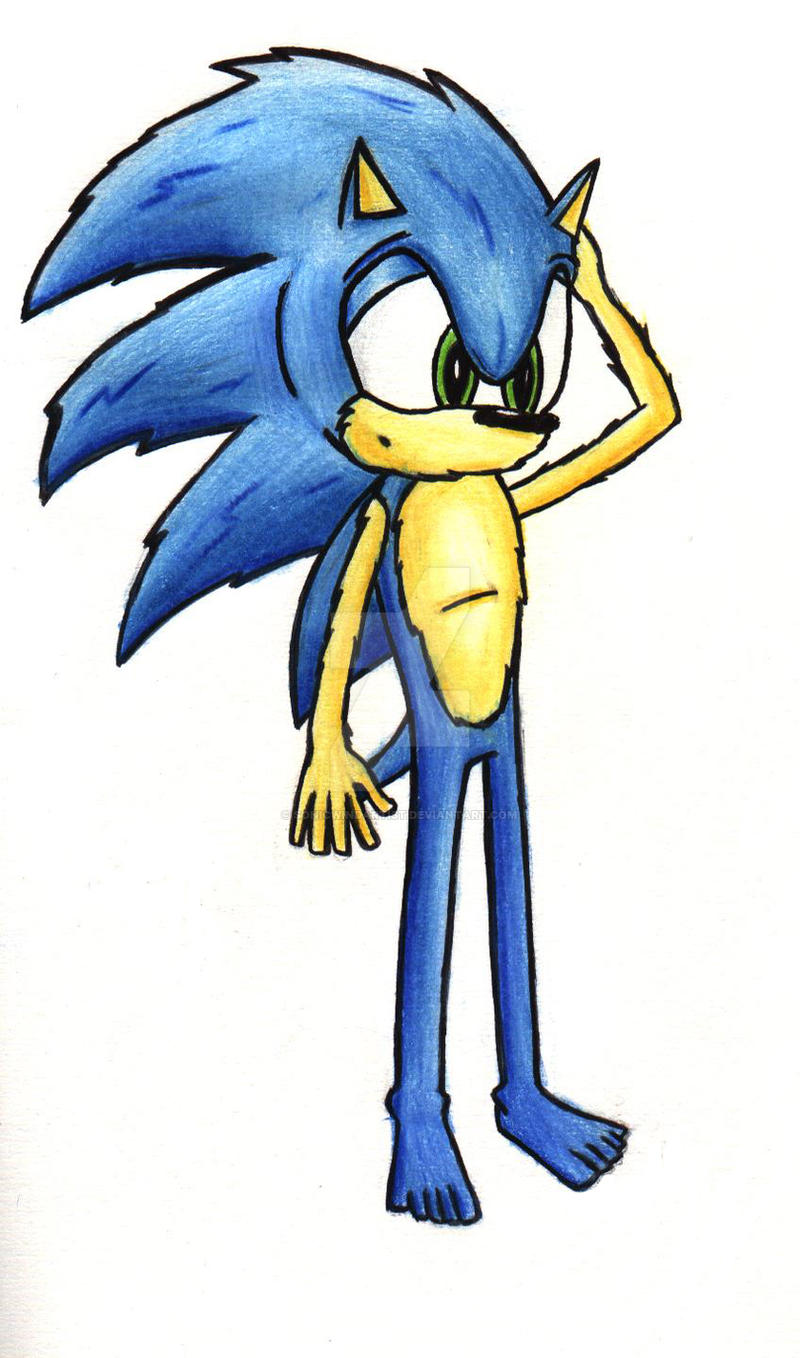
Just woken up? by sonicwindartist on DeviantArt
US /kəˈlɪɡ.rə.fi/ (the art of producing) beautiful writing, often created with a special pen or brush About this To top Contents Wake, wake up or awaken ? - English Grammar Today - a reference to written and spoken English grammar and usage - Cambridge Dictionary

Cartoon Youth Who Has Just Woken Up Stock Illustration Illustration
One of the best responses to 'I just woke up from a nap' is 'Hope you had a nice rest?' which shows that you care about the speaker's welfare. Table of Contents Below are 20 of the best responses to 'I just woke up from a nap' I didn't wake you up, did I? Happy napping! Were you able to rest well? Are you fully awake? Did you dream about me?
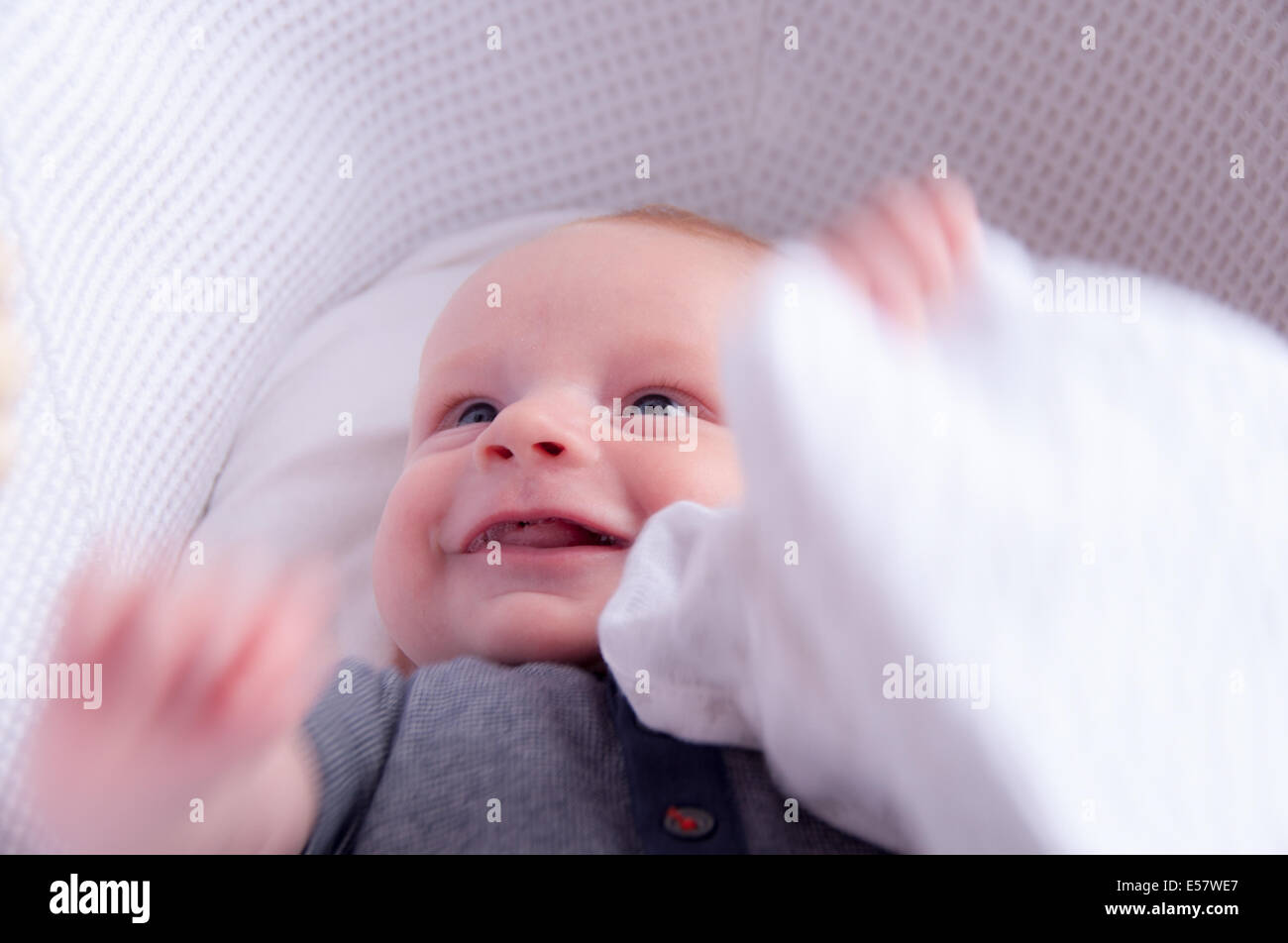
Baby just woken up in his nursery playing and smiling Stock Photo Alamy
Too much time in bed. If you're waking up way before your alarm goes off, Winter surmises you are likely spending too much time in bed. So, essentially, a consistently early natural awakening may indicate that you might want to shift your schedule up. Think of it as a hall pass to stay up a littler later at night.

Just Woken Up stock image. Image of mixed, awoken, night 622923
What to Know The verbs awake and awaken both mean "to rise from sleep." The most common inflections of awake are the past tense awoke ('she awoke suddenly') and the past participle awoken ('she was awoken suddenly').
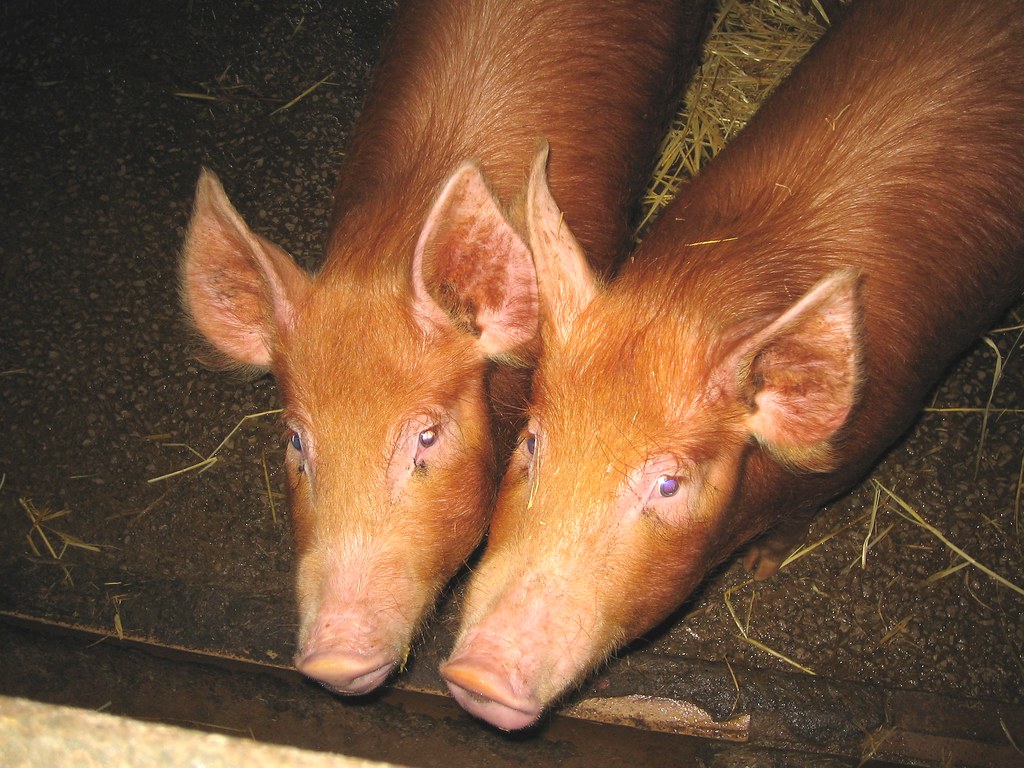
Just woken up and hungry! Chris Flickr
To my ear, "I've just woken up" is far more common than "I've just awoken." More common than either of these, however, would be "I just woke up." The adjective "awake" might be preferred when describing someone in the third person, as in "He's awake now." You are correct that "awake" appears far more often as an adjective than as a verb. 15.